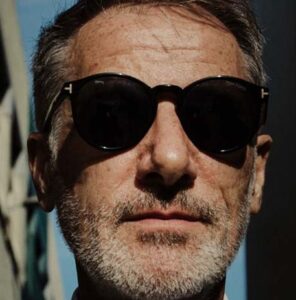Build Better on The USS Hornet

By Philip Stoten, Podcaster, Publisher and Writer
The USS Hornet might seem like an odd venue for an event that brought together technology leaders, engineers and operators from the Silicon Valley electronics manufacturing ecosystem, but on arriving it suddenly felt like an obvious, and perhaps genius, choice.

By Philip Spagnoli Stoten Founder of SCOOP
As you arrive it’s all about the awe and the scale of the vessel itself, but as you board and pass registration you can’t help but be excited by the exhibits you are passing. The USS Hornet was the vessel that recovered the Apollo 11 and 12 after their splashdown in the Pacific Ocean. These exhibits that have actually been to space, sit among numerous aircraft and other innovations including the airstream that was converted to the astronaut mobile quarantine facility for those missions, underlining the importance of technological innovation in a time when ‘the race’ was ‘the space race’. So, where better to explore the vanguard of manufacturing innovation in a digital world that is being increasingly enabled by artificial intelligence (AI).
An exceptional speaker roster was the beginning…
I had been excited by the agenda as I watched it develop over the weeks leading up to the event. Not just because of the big names from the largest technology companies in Silicon Valley as well as founders from some of the fastest moving startups in manufacturing, but also because of the way it was structured. As anyone who knows me will be aware, I do love a debate, and by structuring the day to be a mix of panels, presentations and interviews we saw many more people, gained much more insight and saw far less Powerpoint.
I know I often say, “it’s all about content”. That’s because often it is. Compelling content delivered to a focussed audience is the simplest way to achieve success in any communications opportunity, be that publishing, events or marketing. But in this case the content sat neatly alongside what turned out to be the networking event of the year for this particular community.
As I talked to speakers, panelists, attendees and sponsors about the event, they all listed networking as their number one win from the day. Yes, they were very pleased by what they had seen and learned, but they were delighted with who they had met. I felt the same way; I made some new friends, many of whom will be podcast guests, content contributors and collaborators in the future.
A few highlights
I won’t run through the entire agenda; instead I would invite you to review it at the Build Better website and check out the amazing list of industry rockstars that stepped on stage and candidly share their views, their experience and their insights, even their challenges.
For me the standouts in the agenda were the panels, starting with the opening piece chaired by journalist and author Patrick McGee, with Zach Scott (Head of Hardware at Backbone), Matt Hill (Senior Manager, Device Engineering at Snap Inc.), and Felix Alvarez (Manager, Second Order Effects). This set the scene for the day with the panel exploring ‘The Next Way’. There are many “ways” to do electronics NPI and manufacturing; Motorola gave us EVT, DVT, and PVT and Apple gave us execution at scale. This panel discussed the core lessons of these methodologies and how modern organizations are honoring or breaking them.
Another highlight was hearing Judd Nutting (Product Design Engineering Manager), and Miles Hansen (Product Engineering Manager), both from Meta talk about “Superpowers for Engineers”, and how they are leveraging AI to accelerate NPI. Meta’s Reality Labs is at the forefront of what the devices and AI future might look like. Miles and Judd explain how they employ data and AI tools to do the work of three engineers on every NPI, so they get to have dinner with their kids!
Beyond that there were panels, fireside chats and presentations that dug into leadership, the role of craftsmanship or tribal knowledge, the future of refurbishment, recycling and remanufacturing, innovations in test, the state of the US electronics manufacturing industry, and a sneak peak into the results of “The State of Hardware 2025: 1,000 Engineers on Trends, Challenges, and Toolsets”, a survey produced and presented by Valentina Ratner (Co-Founder & CEO of AllSpice.io).
Not the space race, but a different race
This might not be the race to put a man on the moon, but these events talk to the importance of the race for digital transformation and the race to dominate the application of AI in a meaningful and impactful way.
Just now it feels like AI is the accelerant that digital transformation needs to make a real impact and perhaps even drive changes in the electronics supply chain as we swing from globalization to regionalization. The bottom line is that this community is ready for change and is embracing the chance to share ideas, collaborate and advance the industry together.
Events like Build Better take some of the friction out of that process, bringing people and ideas together. Congratulations to the whole team at Instrumental who created and organized the event and well done and thank you to everyone that got onstage to share their experiences, ideas and insights openly.











